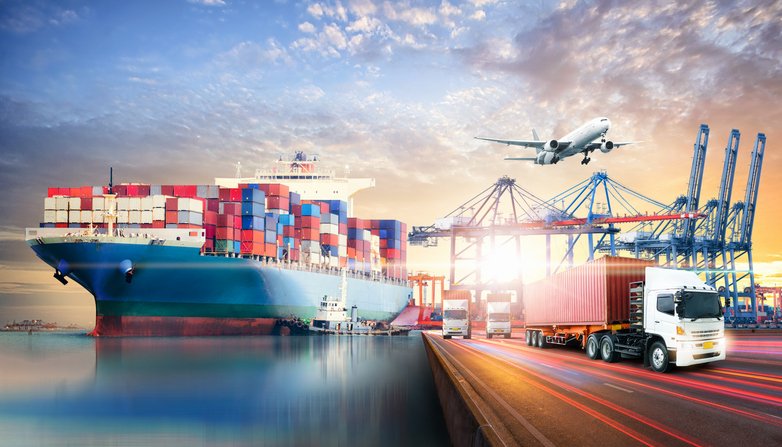8 Advantages of International Banking for Expats


International banking offers expats wealth creation, tax benefits, and investment opportunities, providing financial security and economic protection.
By Luigi Wewege, the Senior Vice President, Caye International Bank in Belize.
There’s more than one type of expatriate in the world today. Some are people who live temporarily in a country due to work or pursuit of an education. Others are retirees who have chosen to spend their later years living in a country other than the one of your citizenship.
Whatever has led to you assuming expat status, there’s no doubt that the banking and investment accounts based in the right offshore location can be a real asset.
Since banking laws vary from country to country, you do want to look closely at the laws that apply in the nation where you plan on residing. Careful scrutiny will often reveal that opening financial accounts in that country will be to your advantage.
Here are some of the more common benefits that expats can enjoy.
Creating Ongoing Wealth for the Retirement Years
While you may be in the country for work or for school, there’s no reason why you can’t begin to amass a little wealth. Do consider what a term deposit account would do to help you generate some interest income while you’re there. Even a standard savings account in many offshore locations offers interest rates that equal or exceed what you can lock in at home.
For those who plan on making the offshore location their place of retirement, it never hurts to have investments or accounts that continue to generate some interest. You can periodically have the interest transferred into your checking account and use it for basic living expenses. This approach provides one more way to generate income as you enjoy those retirement years.
More Protection During Economic Shifts
Local and global economic shifts can have a negative impact on banking and investment account balances. Depending on where you’re living, it’s not outside the realm of possibility that some of those assets will be frozen or otherwise no longer available for your use. In other words, you could be living in one country and find that your bank accounts back home are no longer accessible for a time.
If you have accounts based in the nation where you live, the potential of finding yourself with no access to your money is limited. The situation is even easier to weather if the banking laws and regulations in your offshore location expressly protect you from these types of events.
Minimizing the Tax Obligation
Contrary to what some people think, it’s still necessary to pay taxes on the interest earned on offshore accounts. At the very least, the interest must be reported to your domestic tax agencies. While you should never fail to report the interest income, the banking laws in the country where your accounts are based may help ease your tax obligation.
Pay close attention to how the taxes apply to the interest on your savings and investments. Is the tax deducted before or after adding the interest? Depending on your personal circumstances, how this is done could save you quite a bit of money.
Enjoy Competitive Currency Exchange Rates
Understanding how to make the most of the foreign exchange market can help stretch your resources a little further. This is especially true when the primary currency used in your country of residence is currently superior to the rate of exchange that applies to the currency of your home country.
In this scenario, you have the opportunity to determine which rate of exchange is more favorable for you today. Convert the cash into either currency and then exchange it for another one that yields more returns. You can convert it again when the market shifts slightly. In the meantime, you stand to make quite a bit of return. If you use the converted funds to make an investment and it pays off, you have that much more financial security.
Broader Access to Investment Opportunities
On the subject of investments, it pays to understand that not all opportunities are global. Attempting to purchase shares of stock, bond issues, or participate in other investments may not be possible or practical using the currency of your home country. However, you could get in on those investments using the currency of the nation where your offshore accounts are located.
Consider how this impacts your ability to increase personal wealth. The returns on those investments could be quite high in comparison to similar domestic investments. Best of all, the degree of volatility could be lower. Consider how that could position you to always have funds for other investments as well as necessities.
Easy Access to Your Accounts
Some people think that access to offshore accounts is limited. Thanks to the fact that many offshore banks have robust and secure networks that are accessible around the clock, you can always get to your money. It’s easy to check account balances, arrange for funds transfers, pay bills, and do anything else that you like. In terms of function, those offshore accounts will work just as well (and possibly better) than your domestic accounts.
Think of what that means if you need to transfer funds in the middle of the night. There’s no need to wait until morning. Access the account and initiate the transfer. If you’re transferring funds from your offshore account to a domestic one, it’s possible the money will be in the other account in no more than a couple of hours.
Protecting Assets from Issues at Home
One of the key benefits of offshore accounts is that they offer quite a bit of asset protection. If some sort of judgment is rendered against you at home, the funds in your domestic accounts can be seized. The money that’s currently in your offshore accounts remains out of reach to anyone but yourself.
That will make a difference if you plan on fighting the judgment. In the interim, you can draw on the offshore funds to continue paying your bills. Even if you lose your appeal and the original judgment stands, your offshore accounts remain firmly in your control.
Obtaining Loans in Your Country of Residence
It’s not impossible to obtain loans for purchasing homes, apartments, or other things using the money in a domestic account. The process is simpler and sometimes faster if you have offshore accounts based in the nation where you live.
The financial institution that you currently do business with likely offers loans of different types. That includes loans that are available to expats. You could have the funding that you need sooner rather than later.
Consider what that means if you want to purchase a home or apartment for retirement. How about buying a car rather than having one shipped in from home? Even loans for things like making improvements to properties that you already own will be a lot easier.
You have everything to gain by choosing to establish banking and investment accounts in the country where you’re living. Your expat status will not prevent most institutions from welcoming your business. Consider how those accounts can benefit you now and, in the future, it’s the only smart thing to do.
If you’re thinking of setting up offshore accounts as you plan to move to another nation, consider what Caye International Bank in Belize has to offer. We can help you set up the right account for your needs. Contact us today to get started!
This is a Sponsored Feature
 Author bio:
Author bio:
Luigi Wewege is the Senior Vice President and Head of Private Banking of Caye International Bank, headquartered in Belize, Central America. Outside of the bank, he serves as an Instructor at the FinTech School in California, which provides online training courses on the latest technological and innovation developments within the financial services industry. Luigi is also the published author of The Digital Banking Revolution, available in audio, Kindle, and paperback formats throughout all major international online bookstores – now in its third edition.
The article discusses the benefits of international banking for expats, including wealth creation, tax advantages, and investment opportunities.
Expats can benefit through wealth creation, economic protection, competitive currency exchange rates, and tax advantages.
Expats should consider banking laws, tax obligations, and currency exchange rates when choosing offshore accounts.
Explore more articles in the Investing category











